Join the ranks of leading scientific researchers in a diverse quest to understand biological phenomena in molecular detail.
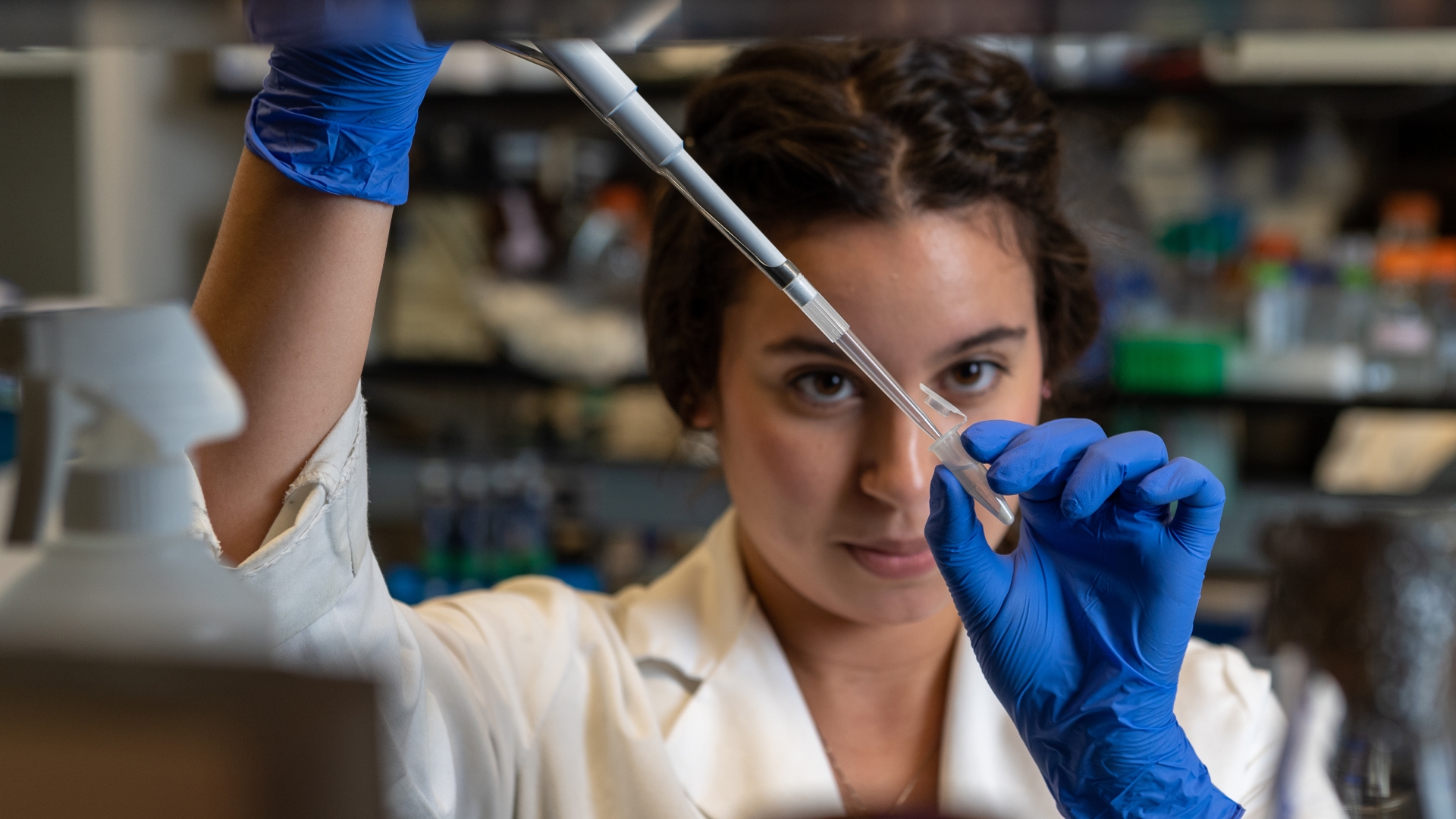
The U-M Medical School Department of Biological Chemistry is dedicated to advancing the molecular understanding of biological processes. We do that through research, in tandem with teaching and training undergraduate, graduate, post-graduate, and medical students.
We want our whole community to have every opportunity to thrive. That means a commitment to diversity, equity and inclusion in all of our ranks. Because the most innovative and impactful discoveries are born from all of our unique perspectives, tackling challenges together.
Explore our rich history, recent news, current events, educational programs, inclusion opportunities and the cutting-edge work underway in our laboratories.
1150 W. Medical Center Dr.
Ann Arbor, MI 48109-0600
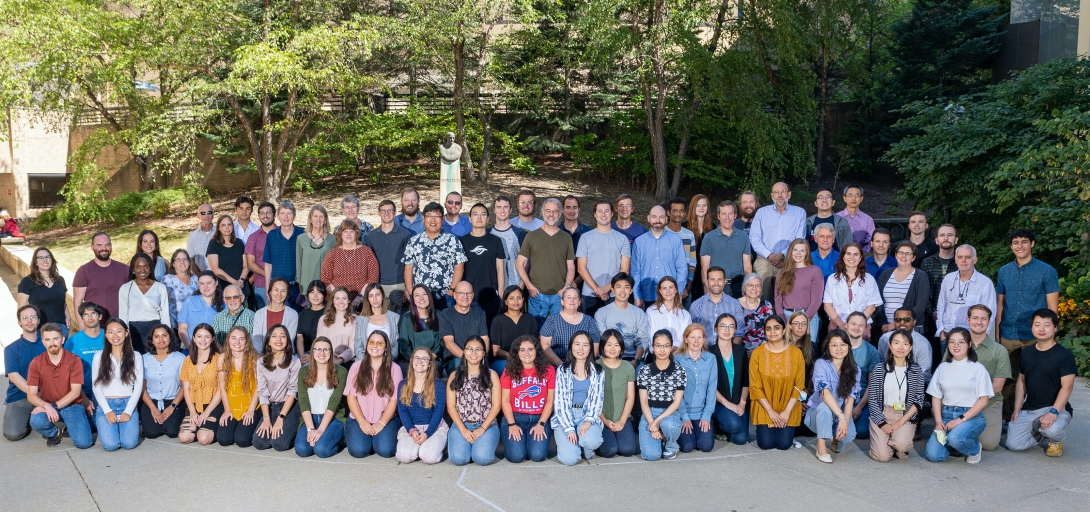
Biological Chemistry 2022
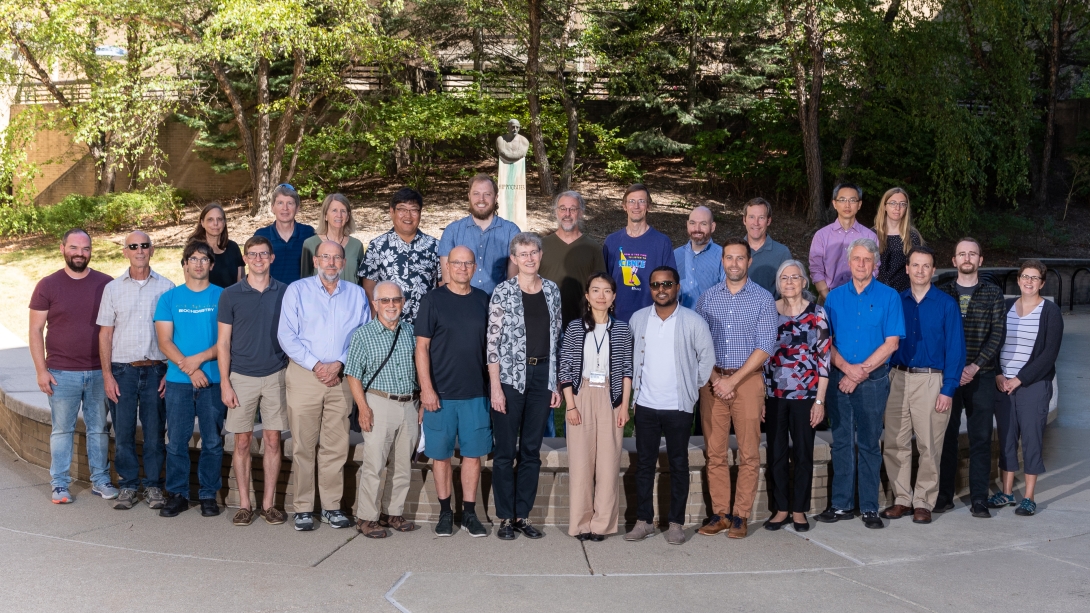
Biological Chemistry Faculty
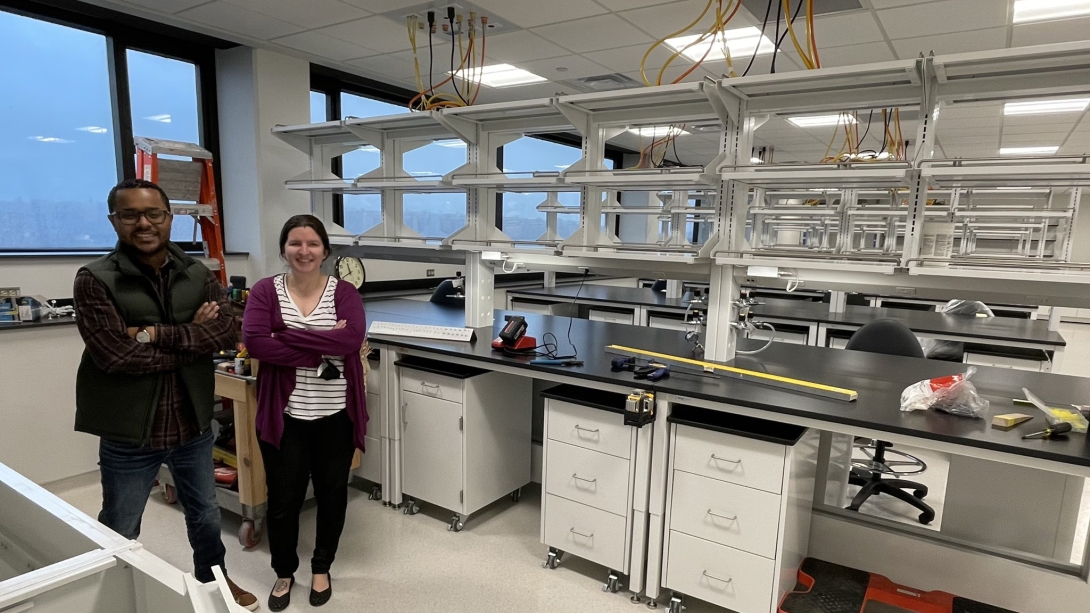
Assistant Professors (and captains of Team Translation) Jay Brito Querido and Rachel Niederer in their renovated lab space
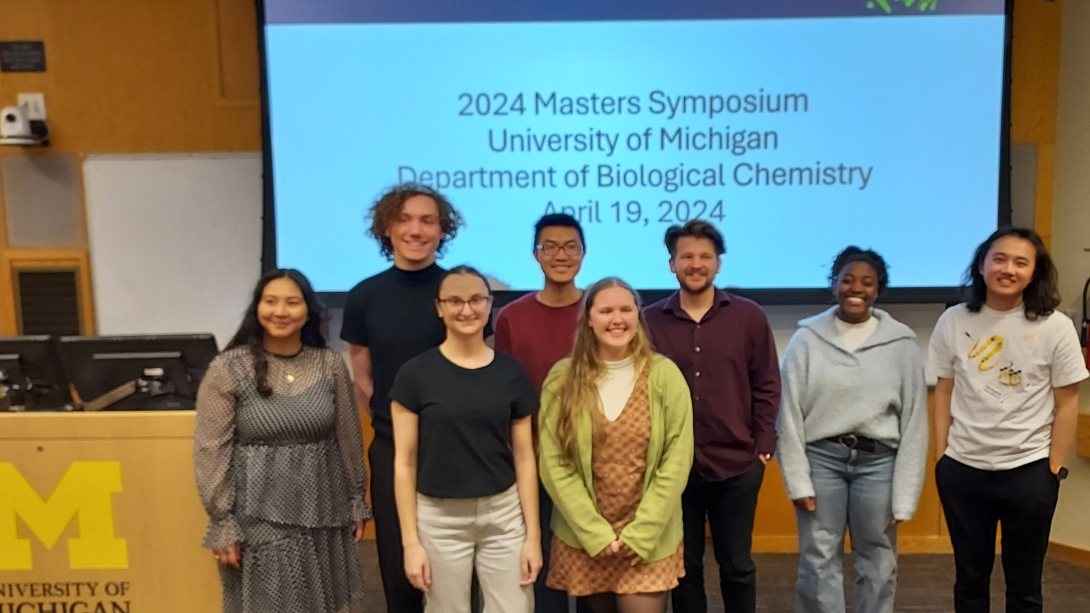
Each MS student gave a presentation about their thesis project at a research symposium held at the end of the 2023–24 academic year.
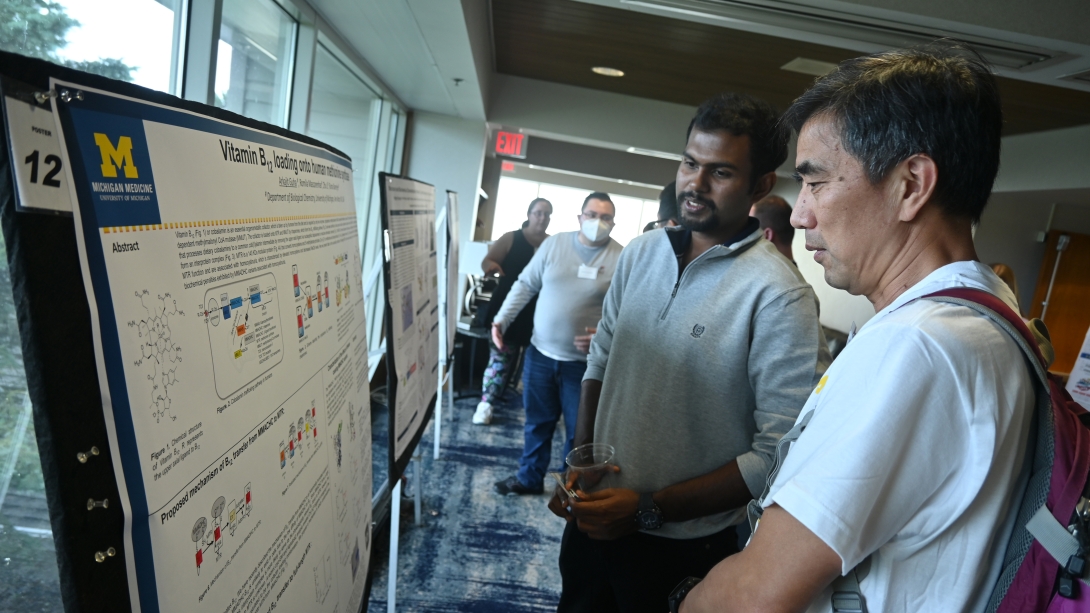
The poster session at the department's annual research retreat
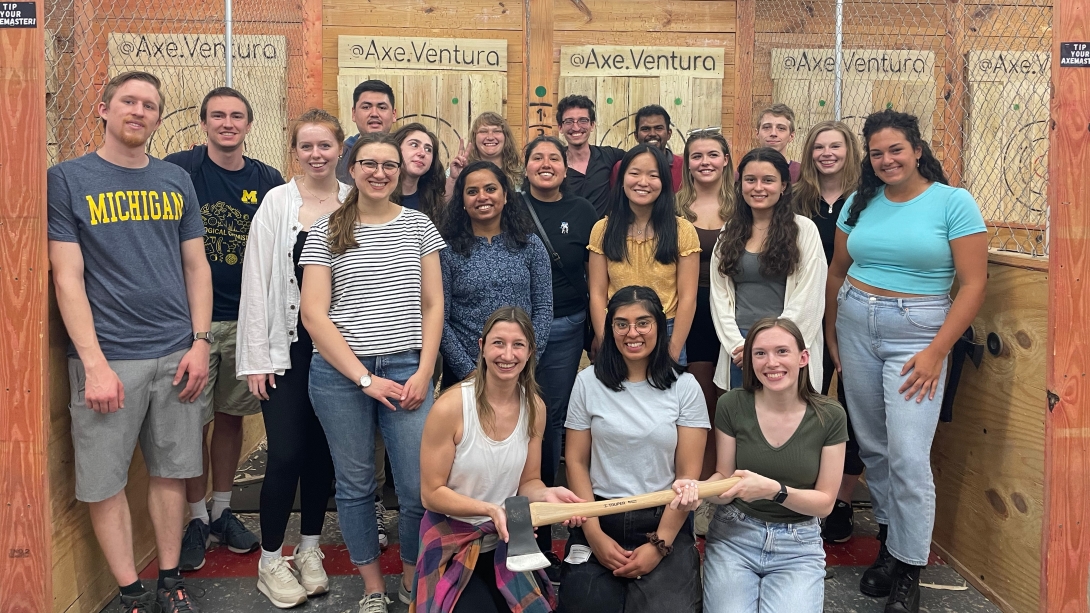
An axe throwing outing for our PhD students

Audience waiting for the start of the 2023 Ludwig Lecture presented by alumna Catherine Drennan
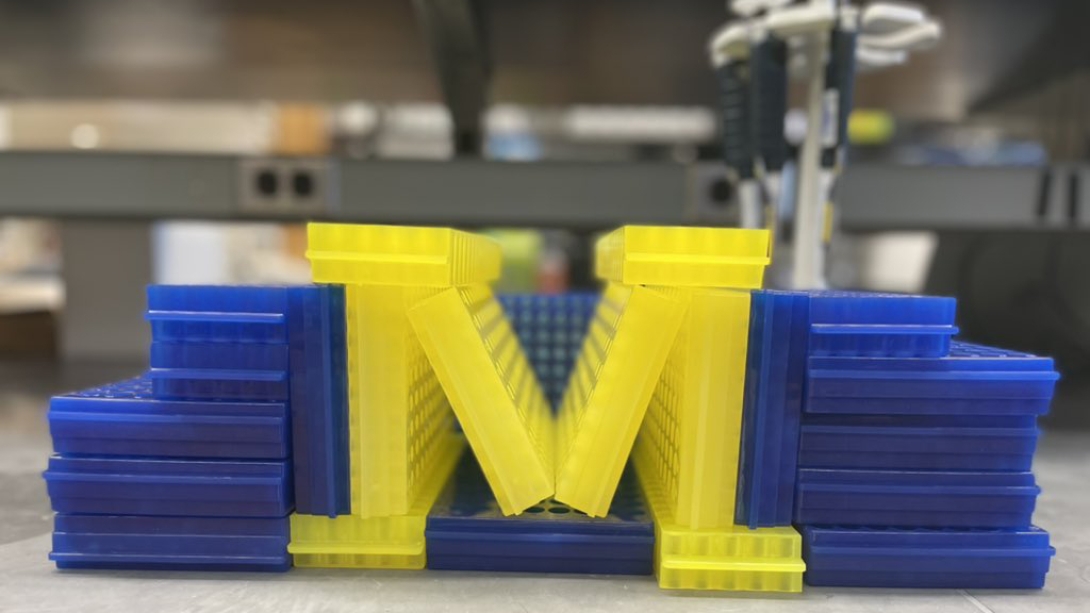
We proudly do research in maize and blue!
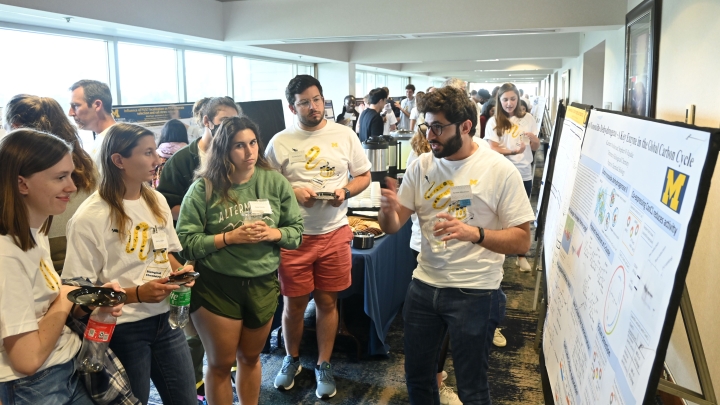
Stay informed about our department’s achievements and the progress we’re making in our mission.

These are challenging times, but the potential and need for progress in fundamental science have never been greater.


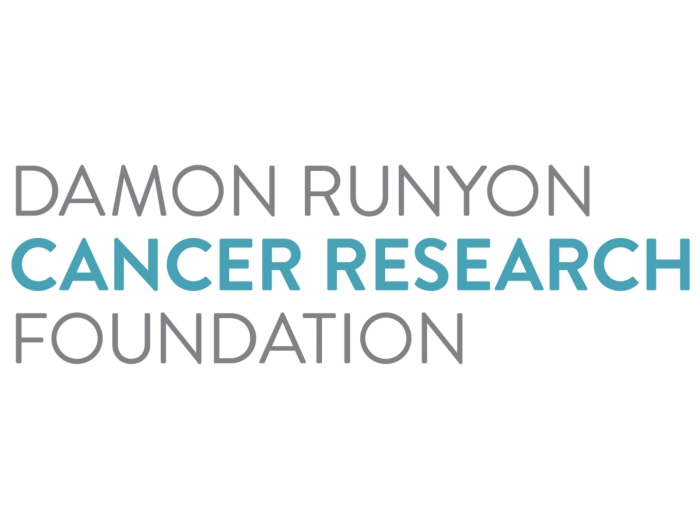



Every dollar donated helps us to continue making breakthroughs as a national leader in biochemical research. There are so many ways your financial gifts help to support our work, from bringing world-class lectures to campus to enabling graduate student innovation and providing resources that take our faculty research programs to the next level. Donated funds are an essential foundation of our mission and community.
The University of Michigan is located on the traditional territory of the Anishinaabe people. In 1817, the Ojibwe, Odawa, and Bodewadmi Nations made the largest single land transfer to the University of Michigan, offered ceremonially through the Treaty at the Foot of the Rapids, with the intent that their children might be educated. We acknowledge their contemporary and ancestral ties to the land and this integral contribution to the University.